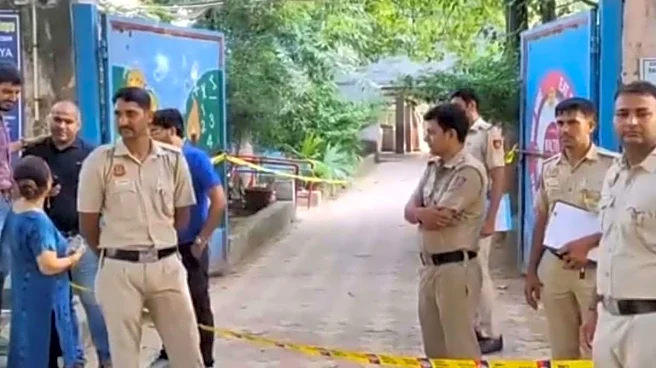A bomb threat email sent to a school in Delhi’s Paschim Vihar on Thursday triggered a swift police response and the activation of standard emergency and cyber-related protocols. According to sources, the local
police received information regarding the threat, following which Bomb Detection and Disposal Squad (BDS) and Anti-Sabotage (AS) teams were dispatched to the school. The cybercrime police also started working and collected technical details related to the email. The school was checked thoroughly, but no suspicious object was found on the premises.
Who sent the email and why?
Subsequent technical analysis led investigators to the source of the email. During IPDR examination, the police identified the specific email ID, device, and internet connection used to send the threat. The senderwas a Class 5 student of the same school.
Sources said the student admitted to having sent the hoax mail with the intention of getting the ongoing assessment cancelled and getting a holiday.
The juvenile has been apprehended, and further legal processes along with forensic analysis of the device are underway.
Interestingly, Virat Kohli is an alumnus of this school who passed out in Class 9 from this school and moved to another school.
The trend
Since January 2025, several schools and courts across Delhi, Mumbai, Gujarat, Karnataka, and Tamil Nadu have received similar email bomb threats. Investigations have revealed a recurring pattern — the messages are sent from anonymised email IDs, often routed through encrypted domains, and written in erratic language intended to cause alarm.
Although all such threats have been proven to be false, authorities say the fear and disruption they create remain significant.
Law enforcement agencies have also found that some of these emails were routed through foreign-based encrypted mail services. Many of these companies, operating from privacy-protective jurisdictions, have refused to share server logs, citing data protection laws — posing challenges to ongoing cyber investigations.




/images/ppid_59c68470-image-177068503852327487.webp)

/images/ppid_59c68470-image-177068508630990142.webp)






